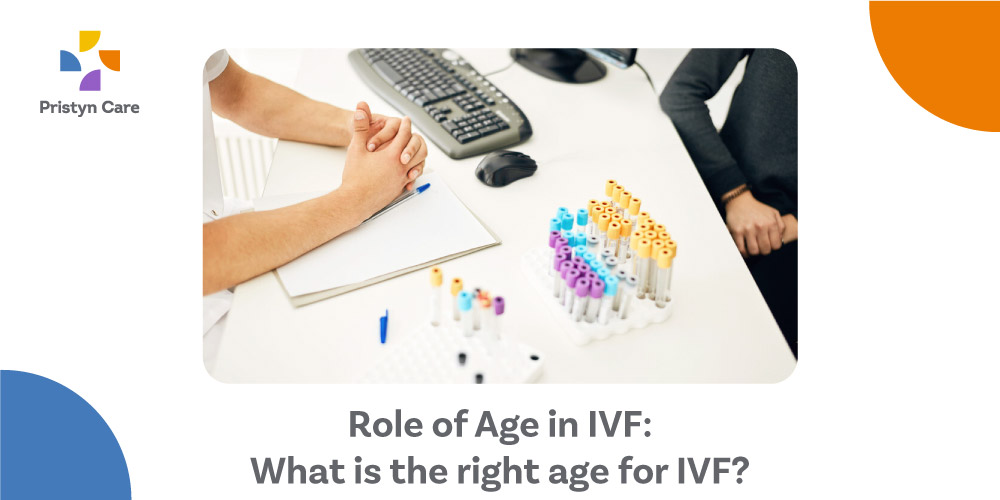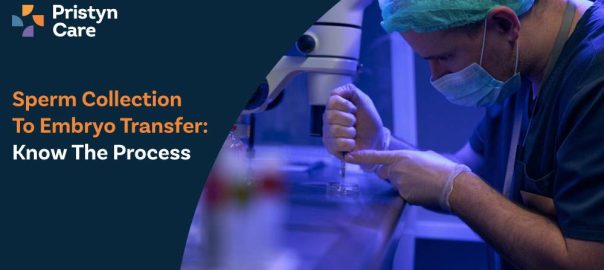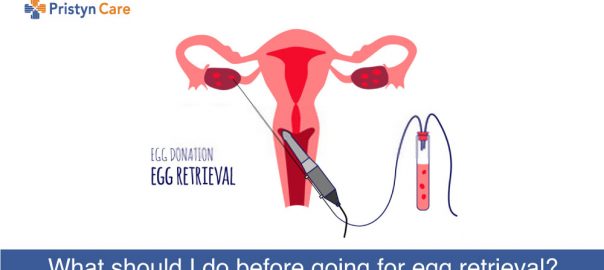![]() Views: 294
Views: 294
What is the right age for IVF?
Dedicated Support at Every Step!
Our Doctors are available 24 hours a day, 7 days a week to help you!
Table of Contents
What is IVF?
IVF or in-vitro fertilization is an assisted reproductive technology. In vitro fertilization (IVF) helps with fertilization, embryo development, and implantation, so you can get pregnant.
Who can opt for IVF?
IVF can be opted by any couple who has trouble conceiving naturally due to any of the following reasons or conditions:
- Unregulated ovulation - If the female partner has trouble ovulating, there might be a lack of number of eggs which are required for fertilization.
- Blockage in the fallopian tube - Any kind of blockage in the fallopian tube can prevent the egg from fertilizing.
- Endometriosis - Endometriosis is a condition in which the tissues of the uterus grow outside the uterus. It can hamper the normal functioning of the uterus to a large extent.
- Low sperm count - Low sperm count or sperm motility is one of the major reasons why couples resort to IVF.
- Genetics - When it comes to reproduction, genetics play a major role. If you have genes which do not favor the possibilities of a natural pregnancy, you can choose IVF.
Is IVF treatment suitable for all age groups?
Age is one of the major factors that plays an odd at times. Age is the main factor that decided the success or failure of IVF treatment. Lifestyle habits and choices do matter, but it is your age that decided the quality and quantity of eggs which are the main components of IVF treatment.
Age and IVF Success Rates
The success rate of a IVF treatment depends highly on the age of the woman. As a woman ages, her chances of having a successful career gradually go down. If she is using her own eggs:
- If the woman is below 35 years of age, the percentage of live births per egg retrieval is 54.4%.
- For a woman between 35 to 37 years of age, the percentage of live births per egg retrieval is 42%.
- For a woman between 38 to 40 years of age, the rate of live births per egg retrieval is 26.6%.
- For a woman aging between 41 to 42 years, the rate of live births per egg retrieval is 13.3%.
- If the woman ages 43 or above, her chances of live births per egg retrieval goes to as low as 3.9%.
| Age group | Live birth rate per retrieval |
| <35 | 54.4% |
| 35-37 | 42% |
| 38-40 | 26.6% |
| 41-42 | 13.3% |
| >43 | 3.9% |
*These percentages are not per cycle, these are data from the records of national IVF success rates, in cases where donor eggs were used.
The chances of a successful pregnancy declines after the age of 40. This is the main reason why women above 40 years of age have to depend on donor eggs. The success rate of a IVF treatment using donor eggs is not dependent on the age of the woman.
IVF Success after 40 years
The upper limit for a successful IVF implantation in terms of age is 42-45 years. If the female is above 43 years of age, then it is recommended that she uses the eggs of a younger woman.
Just like the woman herself, her eggs age too. The ageing eggs are not always capable of fertilization, and the chances of getting those eggs successfully implanted get lower and lower. When a girl is born, she carries around 300,000 eggs, and by the time she reaches 30 years, she is left with only 12% of the eggs. By the time she is 40, only 9000 of the eggs remain. As soon as the woman reaches her menopause, she is left with very few eggs in her ovaries, and there is only a negligible chance of IVF success in her case.
Complications of IVF for upper age women
There are many complications and risks involved in IVF for women above 40 years of age. Some of those are:
- Genetic abnormalities
- Fetal mortality
- Life threatening complication
- Complications during pregnancy and delivery
- Unhealthy fetus
As the woman ages, her fertility treatment also becomes costlier.
What is the right age for IVF?
Medically, the right age for IVF is considered to be late 20s or early 30s. Women are most fertile in their 20s. The chances of having a healthy pregnancy even with assisted reproductive technology decreases after 35 years. IVF treatment is most successful for younger women; the younger you are, the better outcome you receive.
Is there any upper age limit for IVF in India?
Medical science has advanced to such an extent that it is possible to get pregnant with assisted technology even after a woman achieves her menopause. According to the guidelines of 2017 ICMR bill for fertility treatment, the upper age limit for women to get pregnant is 45 years and that for men is 50 years. According to the Assisted Reproductive Technology Bill 2020, the upper age limit for IVF treatment in India is 50 years for female and 55 years for male.
Any couple who cannot conceive naturally and is considering IVF, can now easily get in touch with the best infertility specialist of Pristyn Care for detailed consultation, thorough diagnosis, and advanced treatment.










